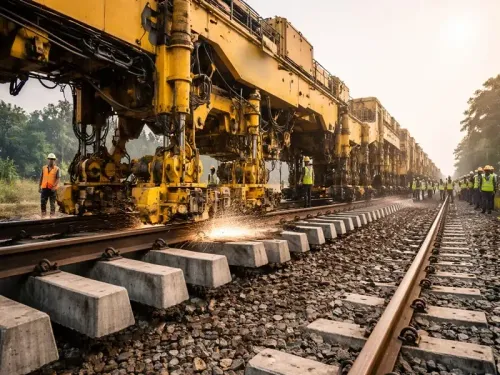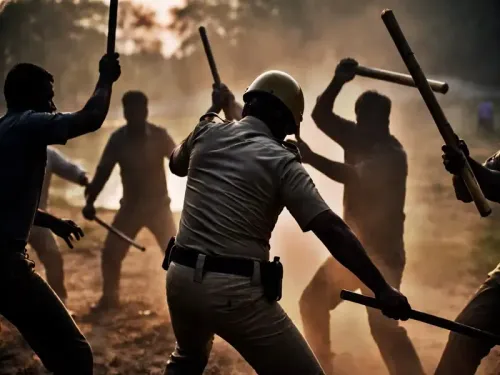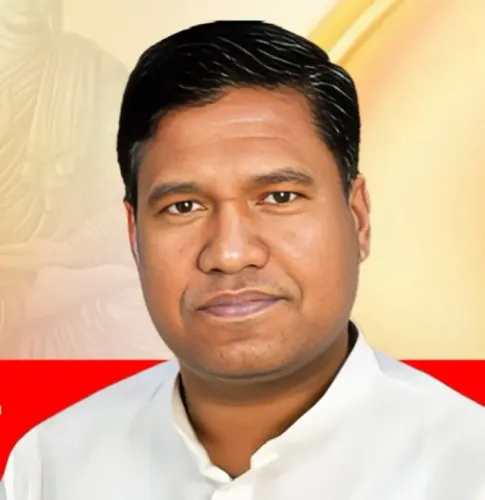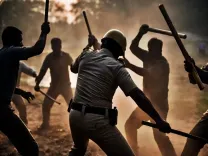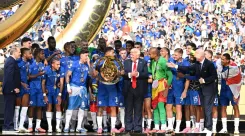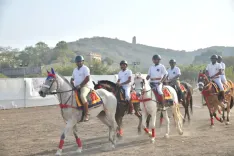Why Did RSS Reject Kharge's Call for a Nationwide Ban?
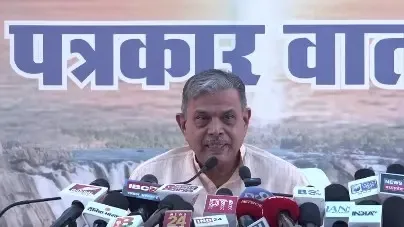
Synopsis
Key Takeaways
- RSS rejects ban calls based on public acceptance.
- Three-day meeting focuses on centenary planning.
- Over 400 leaders participated in the Jabalpur conclave.
- Plans include nationwide outreach and community engagement.
- Responses from BJP highlight political tensions.
Jabalpur, Nov 1 (NationPress) The Rashtriya Swayamsevak Sangh (RSS) has categorically dismissed the recent appeal from Congress President Mallikarjun Kharge for a national prohibition on the organization, arguing that such a demand is unfounded and overlooks its lasting public support.
This response was articulated by RSS General Secretary Dattatreya Hosabale during a press conference held on the second day of the All India Executive Board meeting, which was convened to strategize for the Sangh's upcoming centenary.
While addressing the media in Kachnar City, Madhya Pradesh, Hosabale reiterated the RSS's steadfast dedication to national development. "There must be a valid reason to impose a ban," he stated. "What benefit would arise from prohibiting an organization that actively participates in the betterment of society? The people of India have consistently regarded the RSS as their own."
His comments highlight the Sangh's view of itself as a cultural leader rather than a political opponent, especially in light of increasing partisan tensions.
The three-day gathering, which commenced on October 30 with floral tributes to Bharat Mata by RSS Sarsanghchalak Mohan Bhagwat and Hosabale, represents a significant event.
With over 400 prominent members in attendance—including all six joint general secretaries, regional pracharaks, and provincial leaders from 11 zones and 46 provinces—it marks the first such meeting in Jabalpur in 41 years.
Focus areas include preparations for the RSS's 100th anniversary, which was founded on Vijayadashami in 1925 by Dr. Keshav Baliram Hedgewar, as well as addressing broader national issues such as electoral roll updates and social cohesion. As the centenary year (2025-26) was officially launched last month, the RSS aims for extensive outreach initiatives. Plans feature over 100,000 Hindu conferences across the country, a door-to-door campaign from November 2025 to January 2026 to reach every administrative block, and 100 specialized training camps.
A three-day lecture series led by Bhagwat in Delhi, Mumbai, Bengaluru, and Kolkata is set to begin on August 26, promoting discussions about identity, integrity, and inspiration. International outreach will also include invites to diplomats (excluding certain nations), while paying homage to figures like Guru Tegh Bahadur on the 350th anniversary of his martyrdom and the 150th birth anniversary of Birsa Munda.
Kharge's remarks on October 31 referenced Sardar Vallabhbhai Patel's 1948 ban following Gandhi's assassination and a 1966 prohibition on government employees participating in RSS activities, which was lifted last year. He accused the RSS and BJP of inciting law-and-order issues, urging Prime Minister Narendra Modi to uphold Patel's legacy by reinstating restrictions.
Kharge's son, Karnataka minister Priyank Kharge, supported this by advocating for the exclusion of the RSS from state institutions to avert "brainwashing" the youth.
The BJP responded promptly, with spokesperson Shehzad Poonawalla labeling Congress's reference to Patel as hypocritical, noting their historical neglect of his contributions.
Congress MP Karti Chidambaram expressed skepticism regarding the ban's practicality given the current legal framework. Hosabale's calm response reframes the discussion from conflict to contribution.
As the meeting wraps up on Saturday, the RSS indicates a willingness for reflection over ostentation—prioritizing a commitment to a ">united Hindu society" that drives Bharat's rise on the global stage. In a time of polarized dialogue, this Jabalpur summit reinforces the Sangh's long-term philosophy: enduring strength through cultural roots and expansive engagement.


